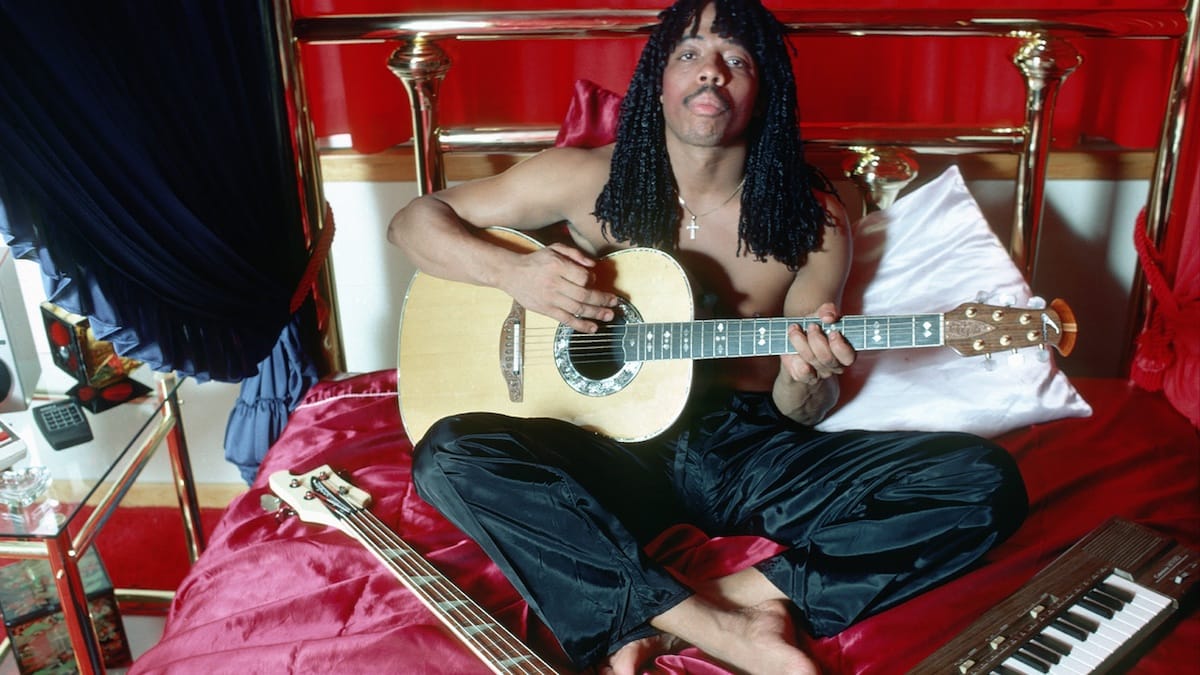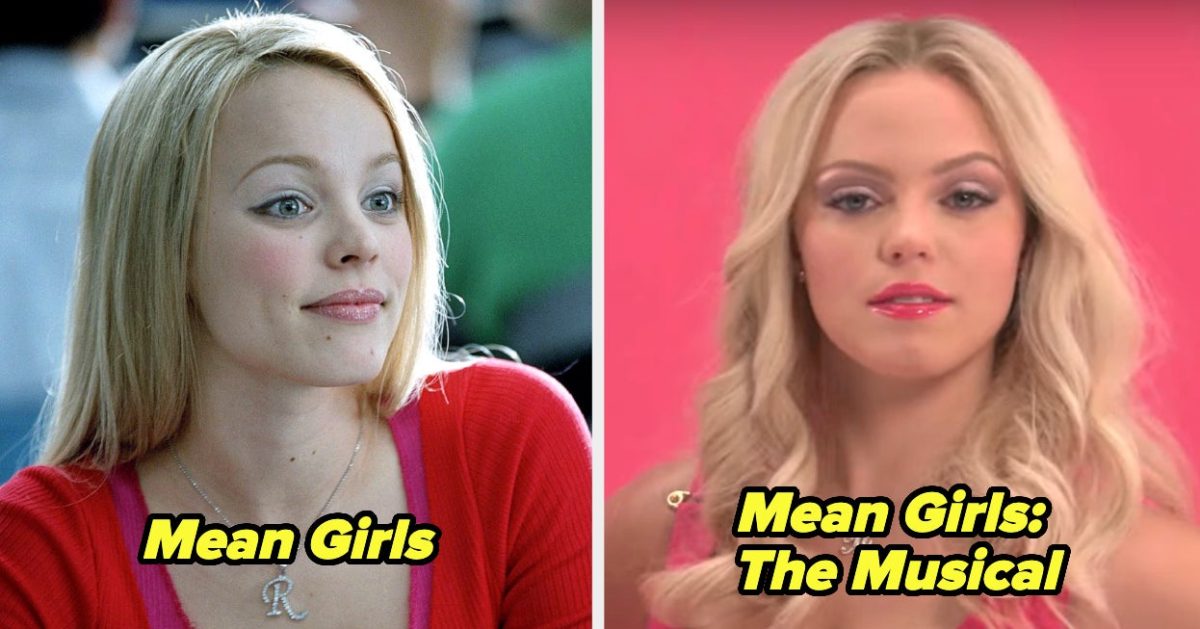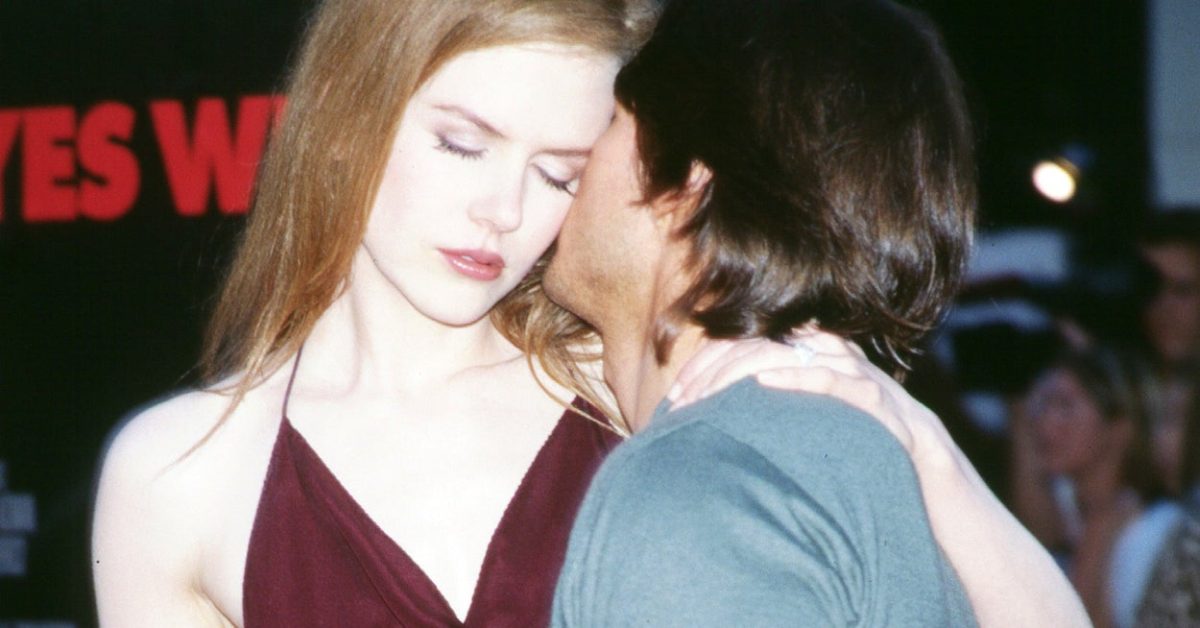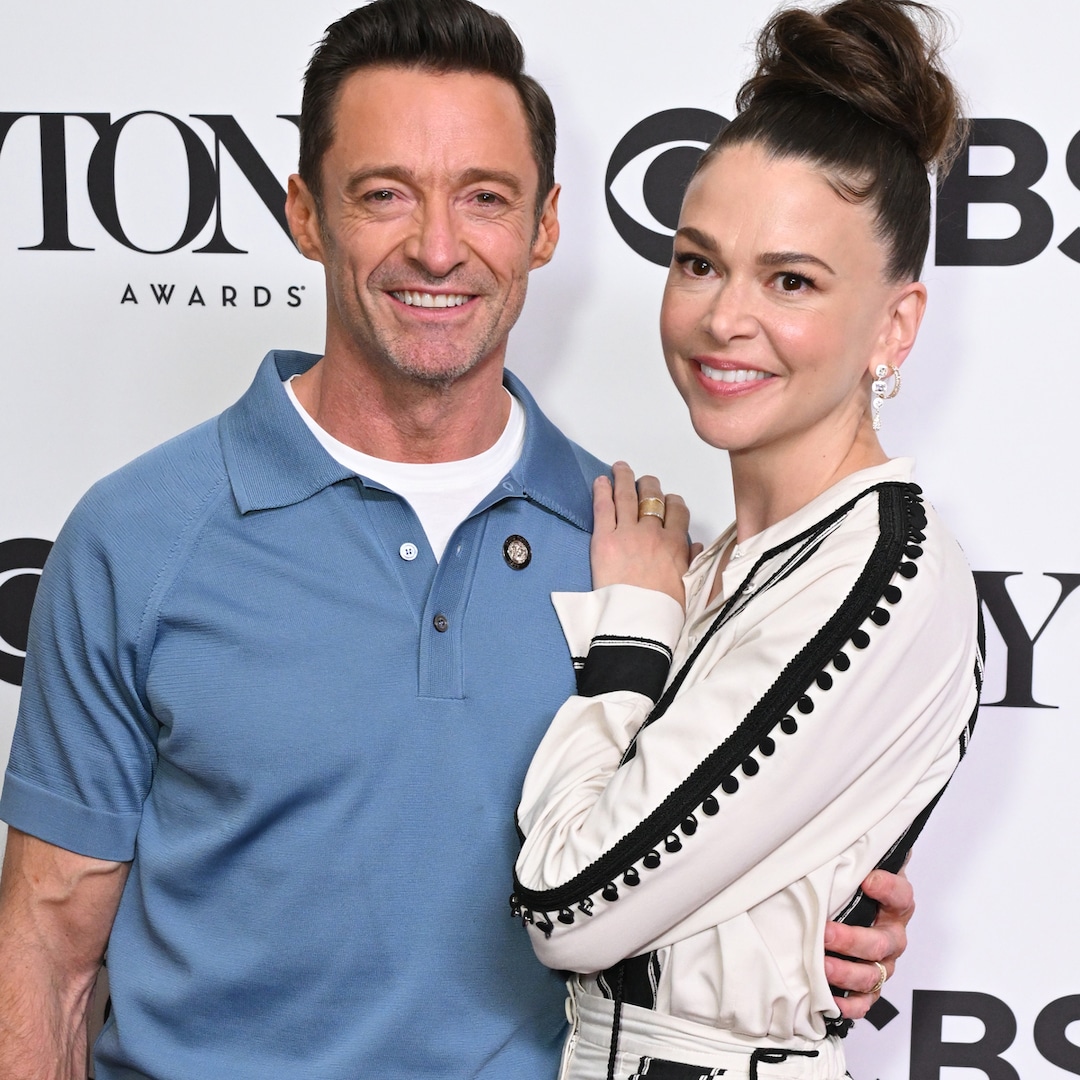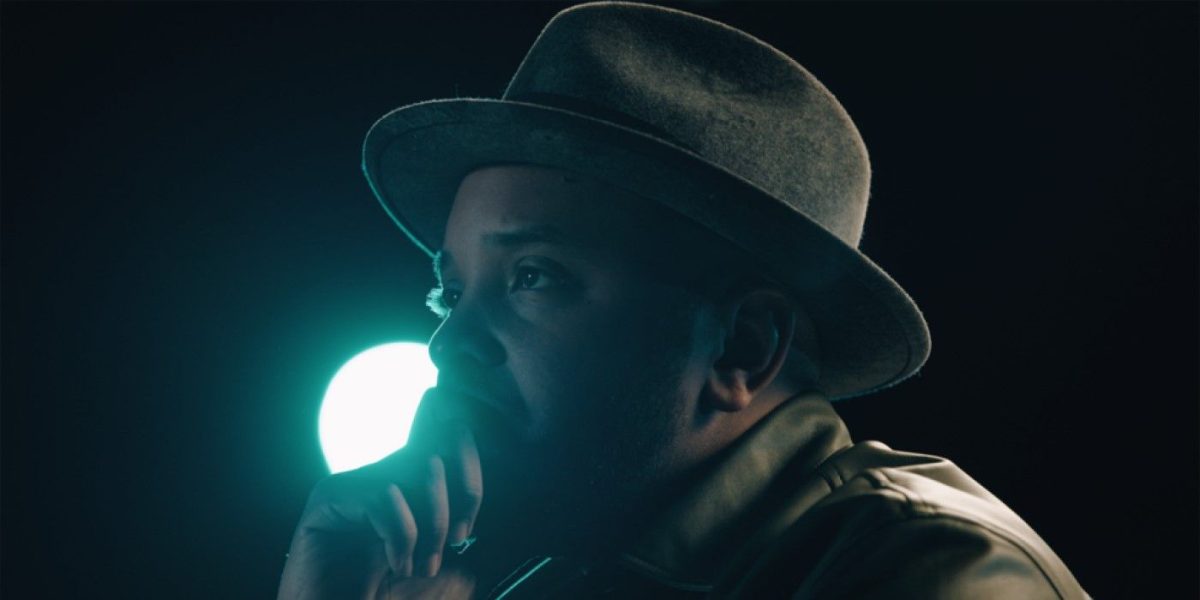
‘Hollywood Black’ Director Justin Simien Is Finding His Place in Black Cinema
Sep 1, 2024
The Big Picture
The MGM+ docuseries ‘Hollywood Black’ explores over a century of Black contributions in Hollywood, fighting stereotypes and opening new doors.
Filmmaker Justin Simien takes viewers on a journey through Black cinema history, from the minstrel era to the present, reexamining Hollywood’s evolution.
Simien highlights struggles of Black artists in Hollywood, emphasizing the importance of authentic Black representation in storytelling and pushing for more opportunities in the industry.
Inspired by the book of the same name from historian Donald Bogle, the MGM+ docuseries Hollywood Black took filmmaker Justin Simien on a journey through cinema from a Black perspective, as he examined films from the silent era to the present, including his own work. Through the personal stories of Black actors, writers, directors, and producers who created their own space behind the camera and on the screen, the four-part series shines a spotlight on the effort to fight against stereotypes, open doors that previously didn’t even exist, and change Hollywood’s perception of what stories should be told, the way that they’re told, and who gets to tell them.
Collider recently got the opportunity to dig into this docuseries with Simien and chat about the influence Black artists and Black culture have had on cinema. During the interview, he talked about how the history nerd within him inspired him to do this, the importance of taking a deep dive to gain a better understanding of the industry’s evolution, how it often doesn’t stop being a struggle and a fight to get the next project going, whether he can appreciate his own success, his experience making and releasing Haunted Mansion, how he feels about being a part of Black cinema himself, the Star Wars TV series that didn’t happen, the Star Trek series he’s currently developing, and his hopes for the future of Black Hollywood.
Being a History Nerd Compelled Filmmaker Justin Simien To Make the ‘Hollywood Black’ Docuseries
Collider: This is a truly excellent docuseries. I’m familiar with a lot of these films, but it was great to learn about how it all connects within history. What made you decide to take this whole journey and to do it on film?
JUSTIN SIMIEN: It’s just in me. I’m a history nerd, and history is often where I go, to find answers. For a long time, I just accepted that there wasn’t any real documentaries about Black film history and I kept watching the Ken Burns Jazz documentary over and over again because at least there’s an allegorical experience there. I think it was 2020. It was after Sundance. I was hella depressed, and I just kept hitting these walls. I was like, “Why is Hollywood not working for me the way it’s working for some of my peers? Why am I unhappy doing what I love? What is this about?” And I reread Donald Bogle’s book that I grew up with, but I was an adult and I had actually been in Hollywood for a certain amount of time, so I was able to connect to it differently. Toms, Coons, Mulattoes, Mammies, and Bucks is his groundbreaking work on early Black experiences in cinema, and I just saw myself, in a different way, in that work.
It was also around that time that Criterion asked me to put together a collection for their channel. The George Floyd protests were going on, and I felt really strongly that I wanted to be a part of those filmmakers that are calling for Criteria to add more Black films, but it’s gonna only be Black filmmakers. In that process, I discovered films I had never seen before, and I got so angry. I’d be watching some of these movies and be like, “Nobody told me about this movie. Nobody put this into context for me in film school. What the hell?” And it grew out of that. It grew out of anger and depression, which a lot of my work does. I reached out to Donald Bogle, who had Hollywood Black coming out, and was like, “Can I adapt it?” It just followed me wherever my production deals would go, and it would die, and then it would come back. It was a long, never quite knew how it would turn out, or when it would turn out, kind of process, but we just kept pushing it up the hill. Eventually, we landed at MGM+ and with Forrest Whitaker’s company and RadicalMedia, and it actually got made. I’m actually stunned. There were many times I was like, “Okay, this is not something the world is ready to make.”
I’ve always been so fascinated by the history of art, music, and cinema, and following it back to its origins.
SIMIEN: You’re a woman. I’m a Black man. Hollywood is not possible without us, and yet so often, we are excluded from its history and from the way it’s talked about. It’s always about diversity. It’s all about these marginalized communities trying to find their way in. But the more and more I read, I was like, “We were literally there from the start.” Movies, like every other American industry, such as pop music, literature, and fashion, it always starts with the undesirable people. It was almost like ubiquitous that women wrote the screenplays and edited the movies back in the day. And similarly, all these traditions are built on the foundation of Black minstrelsy and Black performers that would create these things, and they’d get whitewashed out of the literal picture that everyone else was looking at. It just felt like it was time to tell that story too. It was time for us to rethink this the same way that we’ve started to rethink rock and roll and popular culture, and other things that seem to be removed from Black, queer, and female artists that actually founded it and created it.
The comment at the beginning of the docuseries, “Cinema is not really possible without Blackness,” sounds like such a profound statement, but it’s so simple and it’s so true. When you decided you were going to be a filmmaker, what was your vision of success at that time? Without knowing this history, do you feel like it was a puzzle without all the pieces?
SIMIEN: I had some of it. Spike Lee wrote a book every time he made a movie at the top of his career, and I would read those books, over and over and over and over again. And I had Donald Bogle’s other book. So, I had a sense of it. I didn’t have all the details. I hadn’t seen some of the films. I hadn’t actually engaged with some of the filmmakers. But I had enough of it. Do the Right Thing was pretty fundamental when it clicked for me. I knew I wanted to be a filmmaker, but I knew the kinds of films I liked were sometimes subversive, sometimes had something to say, and didn’t always make people comfortable. And then, when I saw Do the Right Thing, I was like, “Oh, you can do that art house approach to telling a story and have it be filled with authentically Black characters and experiences.” When I saw that movie in high school, I was like, “Oh, okay, that’s the lane. I’m an artist. I’m gonna have something to say and I’ll figure that out as I get older, but these things can actually go together in a career.”
When I came to Hollywood, and I think everyone has this experience, frankly, you become a bit disillusioned by the dream that inspired you to get there. The deep dive into the historical specifics of it is what buoyed me to keep going. It’s hard because it’s always been hard. If I know my history properly, I really can’t expect much more. And then, when the AI conversation started happening, I was like, “Oh, this is all very much related.” This idea that we can suck the creativity from the artist, but exclude them has its roots in the very beginning of Hollywood. That’s exactly what they were doing back then, so of course, that’s in the DNA. I feel like I’m biased as a Black person, but I just feel like anyone who is interested in Hollywood and in movies, once you know some of this stuff, it enriches and changes the way you see the whole thing.
I read an interview with you where you had said, “I don’t think people really understand how tenuous a career in Hollywood is and just how many jobs you have to work.” Does it ever stop feeling like a struggle and a fight?
SIMIEN: It has not stopped for me. And for everything that comes out, there are five or six announcements that didn’t get made. And for every announcement you see, there are even more projects that started that didn’t even get to the announcement phase. The only way to keep working is to be developing 30 things at once. That’s the craziest way to even make art in the first place, to be that distracted, but I don’t really know any other way. I think everyone’s dream is to get out of that particular hamster wheel, but so far, the secret to that has eluded me.
Do you feel like you’ve achieved success when you have success, or all you always thinking about what you haven’t done yet?
SIMIEN: I’m learning to. I think I’ve learned to. When I was younger, and certainly before I broke into Hollywood, it would just break my brain to think about the things I’m able to do. I’ve got a vision for myself. I was inspired by those artists and auteurs that were able to get or were given the space to really tell original, artistically sound, but also entertaining stories. I don’t think I’m at the level of my career yet where I have complete control over that process, at all. I can’t necessarily define my own rules of engagement the way certain other auteur directors and TV makers can. That’s the new goalpost. But at the same time, I am learning to just celebrate the victories. It’s crazy to have been able to do a big Disney blockbuster movie, even though that experience was fraught, especially during the release, and I’ve had my fair share of controversy when I’ve done other projects. But it’s fucking cool. It’s really cool to be here and to be in the ring and to be trying to fight the good fight.
Director Justin Simien Is Ultimately Proud of What He Accomplished With ‘Haunted Mansion’
Image via Disney
Now that you have had some time and distance from Haunted Mansion, how do you feel about that whole experience? You’ve talked about how things changed and what you learn from test screenings, and you’ve also said that there’s probably a four-hour version because of everything you shot that didn’t make it. When you look at it now, how do you feel about how it turned out?
SIMIEN: I have some mixed feelings about it, to be honest. I’m really proud of myself, as a person, in that process. It was extremely difficult, and when the release came, there was just a lot of conversation that was difficult to be in the middle of, especially during the actors strike and all of those things. At the end of the day, I have to say, I’m really proud of the audience scores of that movie. I read some of the reviews, and that wasn’t very good for my soul, so that took me a second. But I’m proud of what I could control in that process. The audience scores on that movie were one thing that I knew I had control over. We would have these test screenings, and I was able to vocalize what people were reacting to and nudge the production towards those directions. And to see that people were really loving it, on that level, when it came out, felt like a win to me. But the whole thing was kind of a bummer. We came out of the shadow of Barbie, of course. And then, there were people questioning whether or not it was appropriate for me to be promoting the film. That stuff was hard. It was. I’m not gonna lie. But it didn’t kill me. I’m glad to have had the experience and to take everything I learned into the next thing.
It’s always such a weird thing to try to judge the success of anything. There are great movies that people never see, and there are movies that make a ton of money that are horrible. So, how do you find your own personal satisfaction and success in something?
SIMIEN: This probably comes with age. I’m 41 now, and inside of me, there’s gotta be a conversation between my own personal metric for success and what society or culture deems a success because that has something to do with my career and the jobs that I get. It has to a conversation between both of those things for me. With Haunted, of the things that were in my control, and there weren’t a ton of things, I’m really proud about how those things turned out. I am. Whatever people might say about the film, even folks who really enjoyed it and were entertained by it, I’m so proud that there is a movie out there where there’s a relationship between a Black man who is struggling to feel his feelings. The movie hinges on him being able to feel his feelings and connect with a kid that doesn’t have a dad, that needs somebody to take care of him and look after him. That might seem very small, but that’s not a narrative that is common out there, and that speaks to my heart and my soul and the things I need from stories. If nothing else, that’s pretty cool. And also, I know that I can do that. I’m in no way, shape, or form intimidated by a budget that size and a production schedule that long. There are other things that I did learn that I probably won’t do again, but in terms of doing a big studio movie, it hasn’t quite spoiled my thoughts on it just yet.
What is it like to be the one to do a project like this, where you get to talk to filmmakers who are still very much in their careers? You’re talking to Gina Prince-Bythewood about Love & Basketball and Ava DuVernay about Selma, but you’re also a part of that with Dear White People. What’s it like to see yourself as part of Black cinema now, alongside those you’ve admired and as a beacon for those next to come?
SIMIEN: It’s awkward because I have that gay good boy syndrome where you both feel attracted to and yet totally repelled by attention of any kind. The team that I was working with at RadicalMedia kept pushing me to put myself more in the story. They kept saying, “Well, it’s your point of view that we want to experience through.” So, some of it was kicking and screaming, but then some of it really was like, “Oh, wow, I am really proud. I can see where my work falls in this greater continuum.” This was one of the things that helped me define my own personal metrics of success. Dear White People did not really feel like a success. The making of that movie and the release of it didn’t feel like a success to me, at the time. To be able to go back and see that it has made a literal cultural impact, and how that impact looks next to other impacts that other filmmakers have made, I’m just proud to be a part of that conversation. It was profoundly moving. You talk about the people who were alive, but we were standing with our ancestors, in a weird way. And I say we because there’s a whole team of people behind this project. We’re looking at these old movies and reading these old histories, and we’re realizing that it speaks to our current present-day experience. There’s something really profound about making those connections to the past.
What Made Justin Simien Want To Develop a New Live-Action ‘Star Trek’ TV Series?
Image via Paramount
It was announced at Comic-Con that you’re doing a live-action Star Trek series for Paramount+. How did you find yourself in Star Trek? And how different to previous Star Trek shows will that be?
SIMIEN: Star Trek has always been there for me. It might seem weird, but especially when you’re looking at the last season of Dear White People, Dear White People is such an ode to Star Trek: The Next Generation. My fandom as a kid was X-Men and Star Trek. You couldn’t tell me anything else was important in the world, but Star Trek a little bit more because it’s live-action and I learned the earliest roots of how I might write something in that. And when I was going to make Dear White People, it was like, “Oh, I do have permission to have a central character, but then to go off on adventures with other characters. I do have permission to not play the plot, every single episode. I do have permission to make the audience encounter paradox and encounter really difficult truths that require lots of different opinions to come together.” It really taught me some of those fundamentals. Of course, there are a lot of references to Star Trek in Dear White People because Lionel, who is sometimes my surrogate, is a Trekker, and he is harassed or celebrated depending on who he’s around. So, it was already there. I’d done some fan podcasts because I was a huge fan of Discovery. There was a call that went out for who’s interested in maybe developing a Star Trek half-hour, and I came in with a pitch. And Tawny Newsome, who I was just getting to know then, also had some ideas. We just got together and got along like a house on fire and refined that pitch, and the Star Trek people really loved it. And so, now we’re developing it.
To answer your other question, I think the goal of any new Trek should be, of course, to take the franchise in a slightly different direction because why else would you need a new show unless it was doing something a little different. But also, find maybe a new novel way to actually honor what Star Trek has always been. I really am a Trekker. I have seen everything multiple times. To me, the task here is, yeah, how do I distill what I feel is the heart of Star Trek, which is people with all of these differences finding a way to advance, and to do so with love and integrity for each other, without breaking each other down. How could you not respond to that message? But how can I say that in a totally different way and honor all the little bells and whistles that make it feel like Star Trek and be funny. That’s the other thing, Tawny and I really bonded over this. Some of our favorite episodes are the sitcom, workplace comedies in disguise episodes, particularly Deep Space Nine, particularly mid to late TNG. That was our sweet spot of inspiration, with the tone of those more comic episodes. Without saying anything specific, that’s the sandbox we’re playing in.
When you work in streaming, does it also feel like you have some freedom with tone and rating that you wouldn’t necessarily have if you had to do it on network TV?
SIMIEN: Well, I don’t know exactly where the show will land. That hasn’t quite been figured out yet. But I don’t notice a difference. They’re all pretty interesting spaces to work in, at this time, in our industry’s evolution. I haven’t noticed a difference yet. All I’ve gotten from the CBS and the Paramount people so far, though, has been incredibly encouraging, shockingly encouraging. I’ll read an email over and over again to look for the other shoe dropping. They’ve been really into what we’ve been talking to them about. So far, so good. And Alex Kurtzman is also a big part of that, too. He’s a big papa. He loves to put together teams of just really good people who also happen to have talent. He’s a great protector of artistic vision. It’s been really great so far, I’ve gotta say. I can’t complain.
When are you aiming to do casting and filming? When do you get to make it real?
SIMIEN: That’s the part that’s not up to me. I don’t know. I know that right now, they’re in the throes of Starfleet Academy, and Tawny is a writer on that show. And so, I’m assuming that probably has to happen before we can get going, but I really don’t know. We are still in early stages. We are still refining what a pilot might be. It’s maybe too soon to tell, but I’m hopeful that it’s not gonna be years from now. We’ll see.
I got especially excited when you were going to be doing the Star Wars/Lando series for Disney+.
SIMIEN: Same.
And then, for whatever reason, like many projects in Hollywood, that didn’t happen. How far along was the development of that? Did you have a series Bible? Did you have a very clear plan, or was it still in very early conversations?
SIMIEN: It was pretty developed. Yeah, there was a Bible, there was concept art, there were scripts, but it just wasn’t meant to be.
How hard is that, just as a filmmaker in general? How do you get over something like that and move past it to focus on the next thing? Do you ever truly get over it?
SIMIEN: I get over it. I’m in therapy a lot. For me, the answer is that you have to really face it. It is true grief. I’ve never had a child, I’ve never lost a child, but it’s what I imagine that pain might be like. You pour so much of your heart and soul into something, but ultimately, you don’t have control over whether it lives or dies, and it is a true grieving process. For me, it has to be done pretty straight on like, “I am in grief. I do not feel good.” I have to let myself feel those feelings, and then, usually at some point in the process, I realize that even in the development of the thing, I learned something, or I grew in some way, or I became fascinated by some area of interest. There’s so much that I experience that I get to keep forever and take into the next project. I obviously can’t take the storyline or the IP or the characters, but there’s so much more that I got, as a maker, and that’s mine. Sorry, it’s too late, you can’t take that part back. With Star Trek, and anything that’s IP that I don’t have direct control over, I just try to remind myself that it really is about the journey. I’m just having fun working with Tawny [Newsome] and Alex [Kurtzman] and Star Trek people. If that’s all it ever is, wow, that’s still a childhood dream. I literally grew up watching that show and wishing I could go to space. I’m living that childhood dream right now. It would be amazing if a series came out the other side of it, but that can’t be the thing that sustains me because even if that does happen, that’s not gonna be today or tomorrow. That’s how I try to look at it.
I was all-in on your Star Wars series before, and now I’m all-in on your Star Trek series.
SIMIEN: I know, I was super into the Star Wars one too. It just wasn’t meant to be. The other thing that really helps, and I give this advice to people all the time, no matter what job you’re trying to get or job you’re working on, always have that thing that’s just yours. I live that advice. I am always working on something that is just mine, original, not been announced, not out here, trying to get make industry moves with it. I’m doing it for my soul. If everything else goes away, I’m still gonna have that. That’s exactly the kind of space that Dear White People came out of, and Bad Hair came out of. That part of me is not gonna go away, even if the other ones do.
Was there ever actually a direct conversation where they said, “The Star Wars series is not happening,” or did they just never mention it again?
SIMIEN: It became clear. They probably won’t want me to say this, but I knew it was official when I read it in the trades. But the writing was super on the wall. I can’t say that there was really a lot of direct communication or conversation about what exactly happened or why.
Is there a movie in Black cinema that didn’t really necessarily have any particular meaning to you when you saw it, other than it maybe being a good movie, that has become more special to you over time?
SIMIEN: What a great question. I talk about The Wiz. The Wiz was pretty great to me the first time I saw it as a child, but it’s a movie that has certainly changed in meaning as I’ve gotten older. It’s almost like reading the Bible because it’s not even a movie to me now. I don’t even see it as a piece of entertainment or art. It is a study, to me, on what it feels like to be a Black person in a strange world, trying to find your way. There are times of my life when I don’t know what to do, and I’ll listen to the soundtrack and have a cry in my car and be like, “Okay, I’m ready.” That doesn’t quite answer your question because I love The Wiz, but it has become much more to me than a movie.
Okay, I have a real answer to your question now – Cabin in the Sky. When I first saw Cabin in the Sky, I was like, “These are a lot of stereotypes in one movie, and I don’t know about this writing. This isn’t for me.” Having it contextualized by understanding the time and the place that created that movie, yes these are stereotypes, but for this time, the way in which these actors are operating inside these stereotypes was actually very radical and innovative. That was one of the first movies that proved the Black box office and proved the enthusiasm with which audiences would embrace Black characters played by actual Black people, imagine that. That’s one of those movies where, with the historical context, I watch it now and am like, “That is so fucking bad ass! You better stretch that stereotype!” But when I first say it, I was like, “What the hell is happening? Why is this movie a classic? I don’t get it.” I think that better nails your question.
What Is Justin Simien’s Hope for the Future of Black Hollywood?
Image via Netflix
By the time you get to the end of this docuseries, you wonder what could be next. What is your hope for Black Hollywood? What would you still like to see? What would you still like to do?
SIMIEN: I want the artist to get a little bit more control and a little bit more money. It’s pretty obvious that the people who control the spigot of money and that control development have absolutely no idea what they’re doing. Just to be clear, I’m not speaking about the development execs that I have day to day contact with. I’m talking about all the way up the food chain. I don’t know if their strategies are working all that well. I think their strategies have led us to this place where we’re all in on streaming, but we don’t know how to make money from streaming, so now we’re all broke and we can’t hire anybody. One of the things I say on my TikTok all the time is that one of the best reasons to study Black history and cinema, in particular, is you see a group of people who are always being disenfranchised and who are always having the rug taken from under them, and yet they continue to innovate and find a way. The American independent film movement of the 1920s and the 1970s, that’s Black people being like, “Well, we can’t do it that way. The industry is in some kind of system that we can’t break, so we’re gonna go ahead and do it this way.” And then, everyone follows that new way.
While the industry is absolutely in crisis, and we can all feel and know that right now, that also means that there’s a lot of opportunity for new voices and people of all backgrounds and stories to tell, but especially us, especially Black folks. This is the time to find a new way in. That is what Tyler Perry did with his plays. That is what Spike did by branding himself, as well as his films, at the same time. That is what Melvin Van Peebles did. That is what Oscar Micheaux did. We take the chaos and we take the crazy, and we make an opportunity out of it. I don’t know what that looks like, but I know I love going to the movies and I know that I love seeing really great stories on TV. I love it all. I want more, and audiences want more. Even if the middleman can’t quite figure out the strategy, that’s not gonna necessarily stop me from making and trying to get it out there.
Hollywood Black is available to stream on MGM+.
Watch on MGM+
Publisher: Source link
Broadway Musicals Vs Movie Adaptations Poll
Just like many actors work in both film and theater, so do many famous stories. Over the years, plenty of Broadway shows have been adapted into movies, and plenty of movies have been adapted into Broadway shows. Now, we ask…
Jan 15, 2025
Hailey Bieber and Justin Bieber Share Photos of Romantic Aspen Getaway
Justin Bieber and Hailey Bieber are snow in love. The “Peaches” singer shared a collection of photos taken as the couple—who welcomed son Jack Blues Bieber in August—enjoyed a recent winter getaway in Aspen, Colo. In the final photo of…
Jan 15, 2025
Nicole Kidman’s Viral Getty Image Catalog
Nicole Kidman's Viral Getty Image Catalog Nicole Kidman has stepped back into the limelight to promote the new A24 erotic thriller Babygirl — and she’s looking as radiant as ever. The Academy Award-winning star has had an incredibly storied career,…
Jan 14, 2025
Hugh Jackman and Sutton Foster Have Steamy Makeout Session
The Music Man's final curtain call was in January 2023. But it wasn't the only thing to come to an end. In September of that year, Jackman and his wife of 27 years Deborra-Lee Furness announced their split."We have been blessed…
Jan 14, 2025



